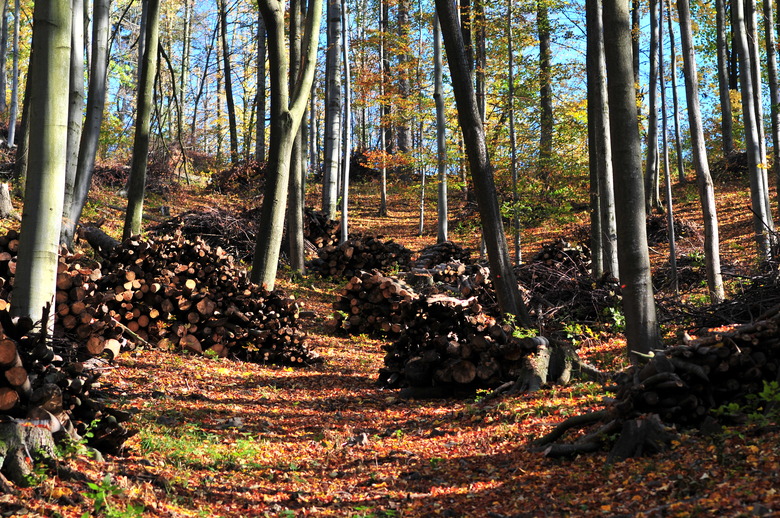The Effects Of Forest Degradation On Ecosystems
Deforestation and degradation of forests create ecological problems in every part of the world. Deforestation is occurring at a rapid pace, especially in tropical regions where millions of acres are clear cut every year. Remaining forests also suffer from pollution and selective logging operations that degrade the integrity of local ecosystems. Destruction of forests also effects the soil and water quality in the immediate area and can have an adverse effect on biodiversity over a range of connected ecosystems.
Loss of Biodiversity
Loss of Biodiversity
The most significant effect of forest degradation is loss of habitat leading to species loss. Forests are among the most biologically diverse ecosystems on the planet. Over half of all terrestrial species live in rainforests, which are subject to the greatest deforestation pressures. Biodiversity loss can occur during selective logging as well, as individual species may be intolerant to loss of a particular tree type or to the presence of logging operations. Species loss within forests can spread to surrounding ecosystems, as food chains often cross ecosystem boundaries.
Disruption of the Water Cycle and River Ecosystems
Disruption of the Water Cycle and River Ecosystems
Evapotranspiration refers to the water that evaporates from the forest back to the atmosphere, increasing rainfall across nearby ecosystems. Loss of forest disrupts this cycle, resulting in less rainfall and causing drier conditions over broad surrounding areas, sometimes leading to drought. Forests also retain moisture from rainfall, allowing it to recharge water tables and regulating the flow of water into rivers and other waterways. Loss of forests often results in increased flooding and erosion of sediment into rivers, disrupting river ecosystems.
Soil Erosion
Soil Erosion
Forests contain particularly rich soil that has received organic material over extended periods of time. When forest is destroyed, the soil is exposed to the sun, which causes it to lose nutrients. During heavy rains, the dry soil is washed away due to lack of root structures in the ground. Once topsoil is lost in an area, it can be very difficult to re-establish forest or use the land for other productive purposes.
Global Warming
Global Warming
Deforestation is a primary cause of human-caused carbon dioxide emissions leading to global warming. All forests contain large amounts of carbon. When they are destroyed, the burning or decomposition of forest matter releases this carbon into the atmosphere in the form of carbon dioxide. Carbon dioxide is a greenhouse gas, absorbing solar heat within the atmosphere. Therefore, higher concentrations of atmospheric carbon dioxide lead to a warmer climate. Global warming threatens ecosystems and biodiversity globally.
Cite This Article
MLA
Johnson, Scott. "The Effects Of Forest Degradation On Ecosystems" sciencing.com, https://www.sciencing.com/effects-forest-degradation-ecosystems-8333738/. 22 November 2019.
APA
Johnson, Scott. (2019, November 22). The Effects Of Forest Degradation On Ecosystems. sciencing.com. Retrieved from https://www.sciencing.com/effects-forest-degradation-ecosystems-8333738/
Chicago
Johnson, Scott. The Effects Of Forest Degradation On Ecosystems last modified August 30, 2022. https://www.sciencing.com/effects-forest-degradation-ecosystems-8333738/
